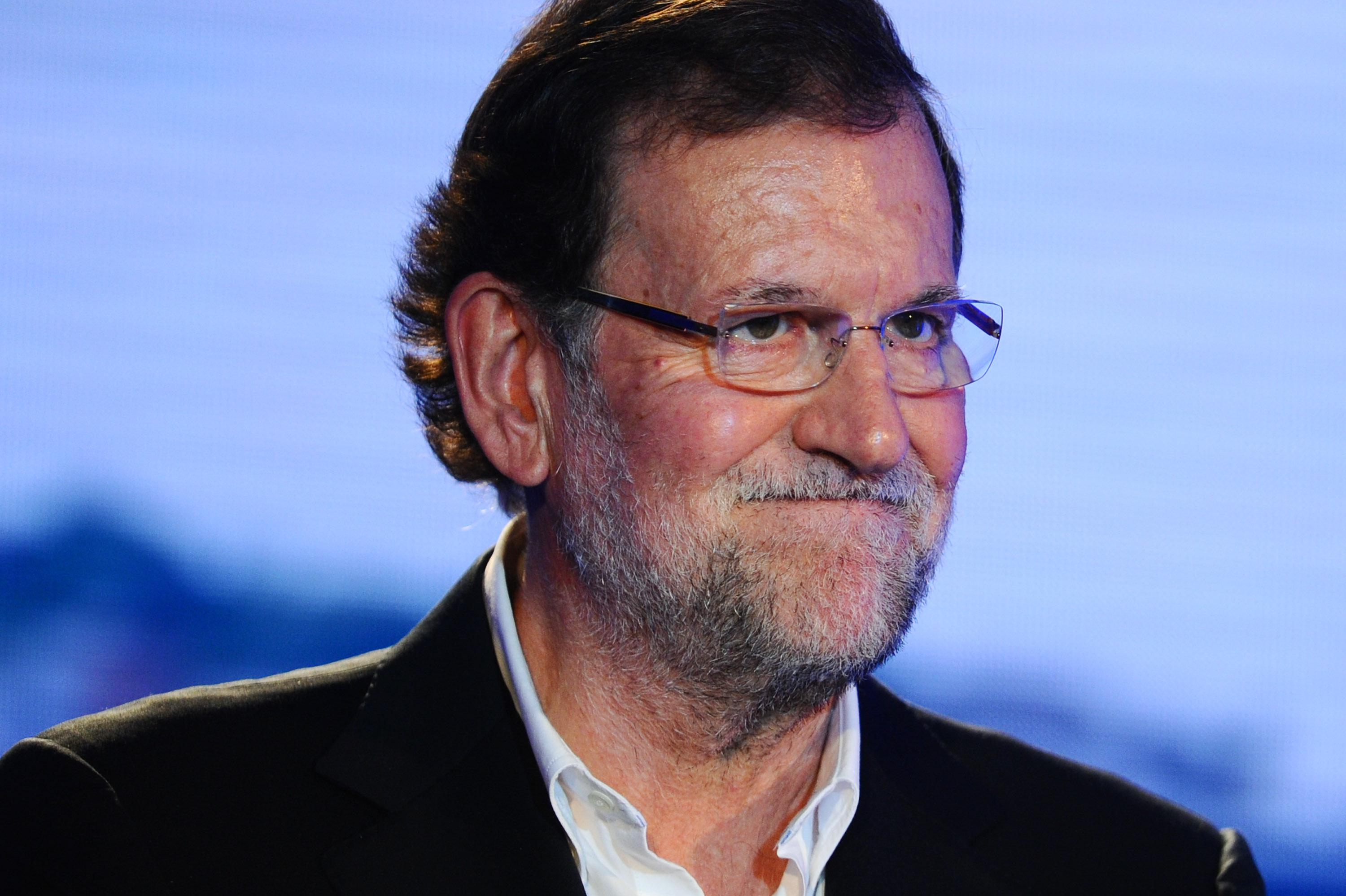Spanish Prime Minister Mariano Rajoy was punched in the face at a campaign stop in his hometown on Wednesday.
The assault occurred just a few days ahead of a contentious parliamentary election. Video footage shows the 17-year-old attacker, who has not been named, hitting Rajoy hard as he speaks to a crowd in the city of Pontevedra in the northern Galicia region. Rajoy was not seriously injured, but his face was bruised and his glasses crushed on the ground.
The motive isn’t clear yet. According to El País, the assailant, who had gotten close to the prime minister claiming he wanted a selfie, said he was “very happy to have done it” as he was being arrested. Police believed he may have been affiliated with an anti-austerity protest group, but the group has denied any connection to him. Pablo Iglesias, leader of the far-left Podemos party, which is closely linked to those protests, also condemned the attack.
The lead-up to Sunday’s election had already been getting pretty ugly before the punch. A televised debate on Monday between the candidates from Spain’s two traditionally dominant parties—Rajoy of the conservative Popular Party, and Pedro Sánchez of the center-left Socialists—got unusually personal. Sánchez argued that Rajoy should have stepped down two years ago over a corruption scandal, saying, “The prime minister needs to be a decent person and you are not.”
Rajoy came back with the Trumpian retort, “You are young and you are going to lose these elections. You can recover from an election loss, but you can’t recover from the contemptible, mean and miserable statement you have made here today.”
Polls suggest Rajoy will stay in power but that his party will lose its parliamentary majority. Under Rajoy, who first took office in 2011, the Spanish economy has begun to recover from its devastating financial crisis, but unemployment, at 21 percent, is the second highest in Europe after Greece. As in Greece, the government’s unpopular austerity measures have sparked mass protests and provided an opening for alternative political parties, namely the business-friendly centrist Ciudidanos and the left-wing Podemos. Rajoy has refused to debate the leaders of either of the new parties, which are both challenging the Socialists for second place.
Iglesias had predicted that Monday’s contentious debate would be seen as “the epilogue to the era of two-party domination.” Today may have given it an even uglier coda.
